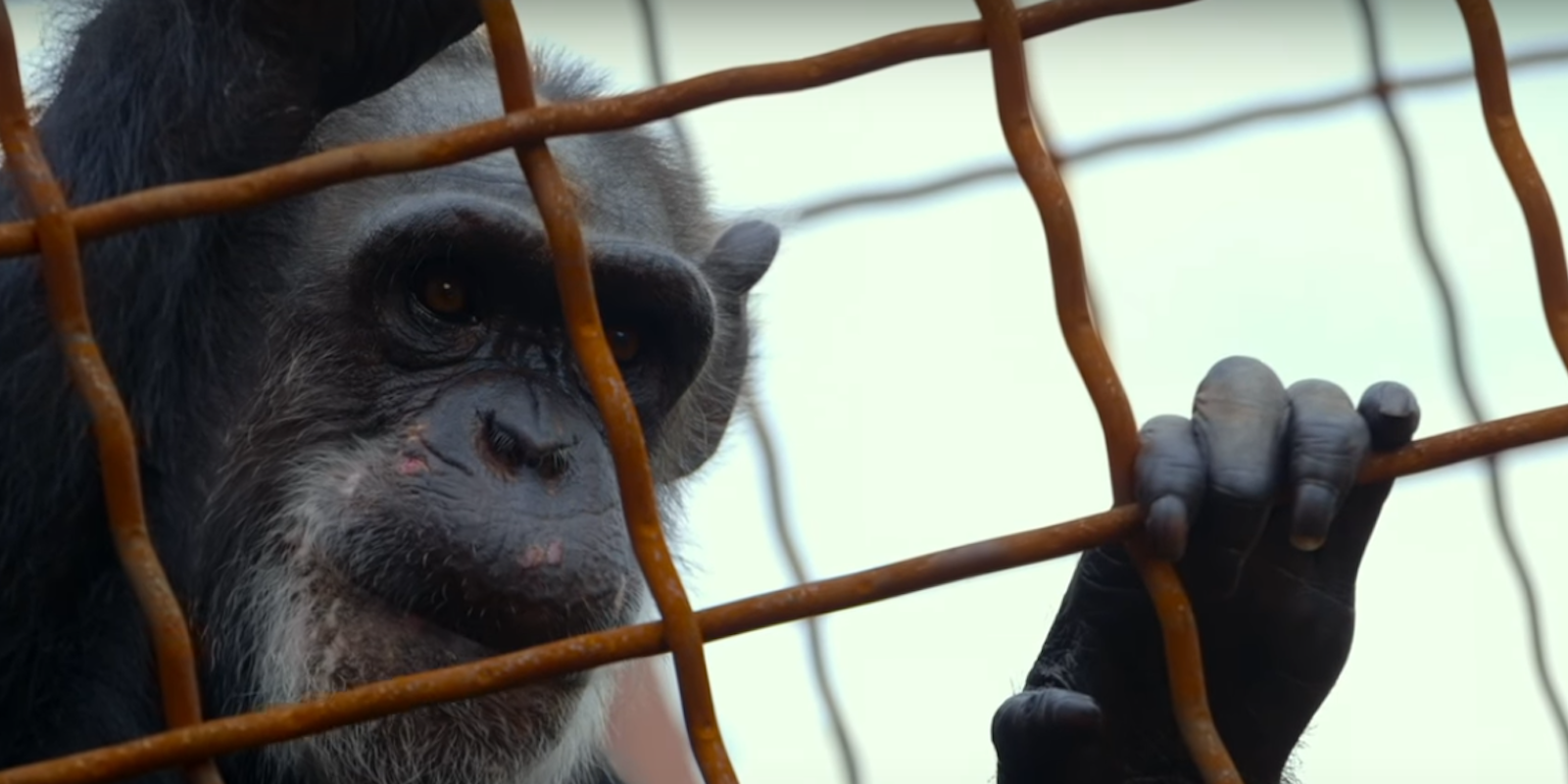HBO documentary Unlocking the Cage, from directors D.A. Pennebaker and Chris Hegedus, is an animal rights story packaged as a surprisingly gripping legal drama. But you won’t bring it up over dinner.
It’s easy for documentaries to present a case with a clear right side and wrong side, then feed you a healthy dose of moral outrage while everyone is perched on their high horse. Who doesn’t like being told they’re right?
That’s how recent docs like The Cove and Blackfish garnered enough attention to spark a change. But it isn’t always that simple, and that preaching to the choir presentation doesn’t often endure (see the works of Michael Moore and Dinesh D’Souza).
Cage follows the Nonhuman Rights Project and its quest to win legal rights for “nonhuman persons.” The group is is led by animal rights lawyer Steven Wise, who has dedicated most of his legal career fighting on behalf of animals.
Cage covers Wise and the NRP team over the course of 2013-2015, as they build the case for a select number of chimpanzees to receive a habeas corpus, which protects humans against illegal imprisonment. Why doesn’t this matter fall under typical animal welfare laws and regulations? That’s a good question, and it’s one Wise faces countless times in the press and in the courtroom.
The answer lies in the fact that NRP’s goal isn’t to free a few chimps, but to get a group of animals including elephants and cetaceans (marine mammals such as dolphins and whales) non-person human rights. Watching Wise thread the needle in courtrooms is fairly entertaining and helps show the difficulty of his task. Another element that works in Wise’s favor, and the film’s, is that he gets judges who are varying degrees of sympathetic toward his cause. Even when he doesn’t get the result he wants, there isn’t a true antagonist.
The main roadblocks are precedents, the slippery slope their victory could lead to. One of Wise’s goals is to find a judge willing to break through a barrier, and that eventually saps the film of drama. The law allows Wise to try his case as many times as he wants to, so persistence is almost as important as anything else he can bring to court.
And his persistence is tested often, whether it’s because an older chimp passed away before a court date or judges simply rejected the case altogether. Some of your enjoyment of the film will boil down to how much you enjoy watching people pick themselves up off the mat.
The aspect of the case that elevates the film into something stickier is the parable to human rights. Wise’s case references other points where people, namely slaves, had to go through the courts to get fundamental rights. It’s an unavoidable comparison, and one that the film unfortunately doesn’t explore. But it’s there lingering over the proceedings.
The doc will inspire anger at the slow-turning wheel of progress. But it will also remind you that there will always be people fighting the good fight.
Cage isn’t as impactful as call-to-arms films like The Cove or Blackfish, but those movies had a clear morality with obvious solutions. Wise’s activism is much more nuanced and deals in gray areas. If the result doesn’t immediately smack your conscience, that’s because the answer is still evolving.


